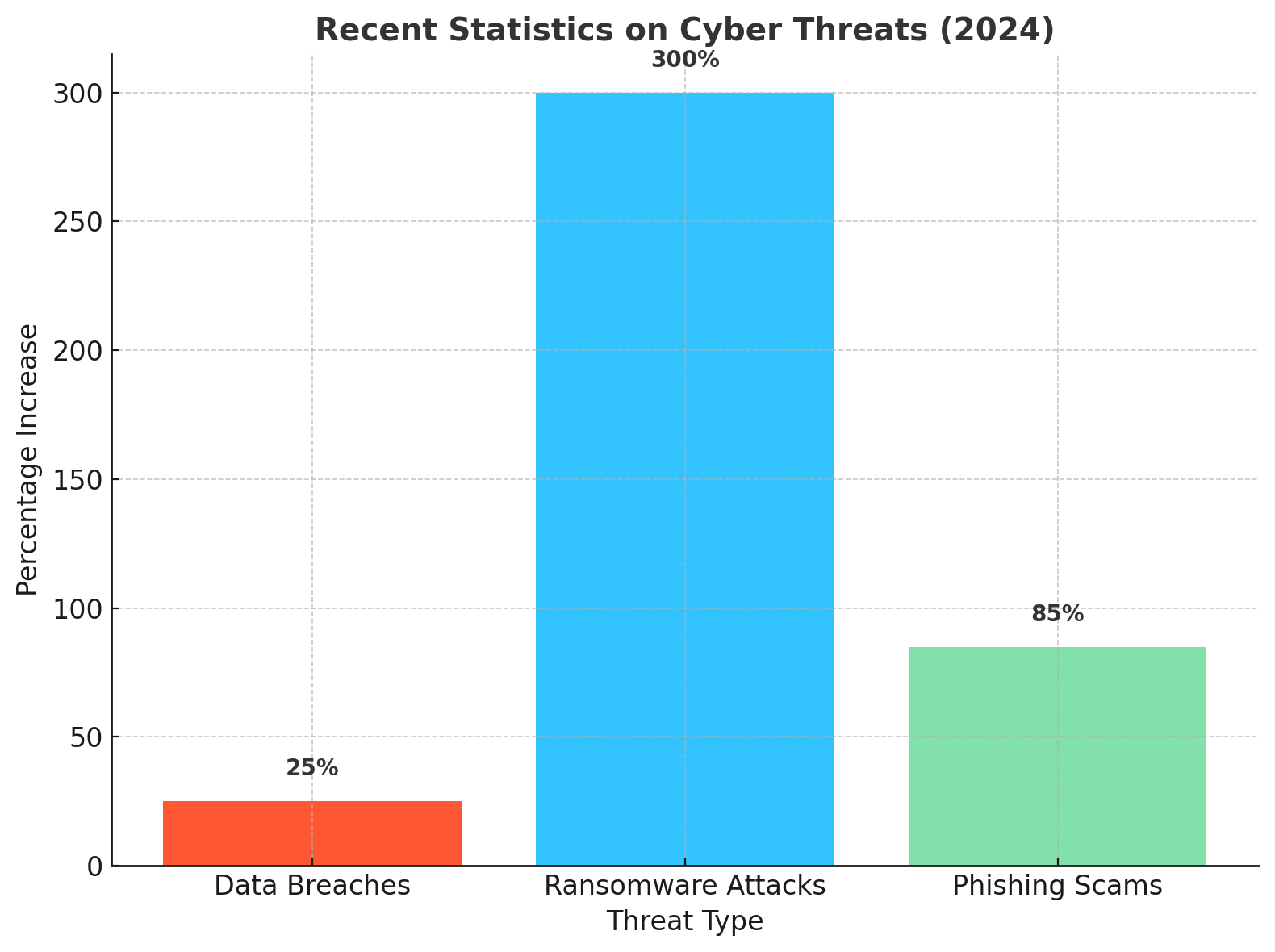Introduction to Cybersecurity: Why It Matters
 Aboelhamd Abdellatif
Aboelhamd Abdellatif
In today’s interconnected world, cybersecurity has become more critical than ever. As our lives become increasingly digital, the risks associated with cyber threats grow exponentially. This article explores the importance of cybersecurity, recent statistics on cyber threats, and the impact of these threats on individuals and organizations.
The Growing Importance of Cybersecurity
Cybersecurity encompasses the practices and technologies designed to protect networks, devices, and data from unauthorized access, damage, or attacks. In a landscape where nearly every aspect of our lives is online—banking, shopping, communication—the need for robust cybersecurity measures cannot be overstated.
The Digital Landscape
According to a report by Cybersecurity Ventures, the global cost of cybercrime is projected to reach $10.5 trillion annually by 2025. This staggering figure underscores the urgency for effective cybersecurity measures across all sectors.
Here’s an updated version of the paragraph with 2024 data and all values expressed as percentage increases for a consistent format. The hypothetical increases are based on general industry trends and statistics.
Recent Statistics on Cyber Threats (2024)
Data Breaches: The number of data breaches in 2024 has increased by 25% compared to 2023, with billions of personal records exposed globally.
Ransomware Attacks: Ransomware attacks saw a 300% increase in the past year, targeting businesses, hospitals, and public institutions.
Phishing Scams: Over 85% of organizations reported experiencing phishing attacks, a 5% increase from 2023, emphasizing the growing need for cybersecurity awareness and training programs.
These statistics paint a clear picture: no one is immune to cyber threats in today's digital landscape.

How Cyber Threats Affect Individuals and Organizations
For Individuals
Identity Theft: Personal information can be stolen and used for fraudulent purposes, leading to financial loss and damaged credit.
Financial Loss: Cybercriminals exploit vulnerabilities to access bank accounts and steal funds directly.
Emotional Impact: Victims of cybercrime often experience stress and anxiety, affecting their overall well-being.
For Organizations
Financial Costs: The average cost of a data breach for a company is estimated at $4.24 million, including legal fees, penalties, and loss of customer trust.
Reputation Damage: Organizations face significant reputational harm following a breach, which can lead to a loss of clients and revenue.
Regulatory Consequences: Many regions impose strict data protection regulations. Non-compliance can result in hefty fines.
Protecting Yourself and Your Organization

Given the evolving nature of cyber threats, it’s essential to implement effective cybersecurity strategies. Here are some key measures:
For Individuals
Use Strong Passwords: Combine letters, numbers, and symbols. Consider using a password manager to keep track of them.
Enable Two-Factor Authentication (2FA): This adds an extra layer of security by requiring a second form of verification.
Stay Informed: Regularly educate yourself about the latest threats and how to recognize them.
For Organizations
Conduct Regular Security Audits: Assess and strengthen security measures to protect sensitive data.
Employee Training: Educate employees about cybersecurity best practices and how to recognize phishing attempts.
Implement Security Software: Use firewalls, antivirus software, and encryption to safeguard your data.
Conclusion
As our digital landscape continues to expand, the importance of cybersecurity will only grow. Understanding the risks and implementing proactive measures is essential for individuals and organizations alike. By prioritizing cybersecurity, we can protect our information, finances, and overall well-being in an increasingly digital world.
Subscribe to my newsletter
Read articles from Aboelhamd Abdellatif directly inside your inbox. Subscribe to the newsletter, and don't miss out.
Written by

Aboelhamd Abdellatif
Aboelhamd Abdellatif
Cybersecurity Infrastructure Specialist | Aspiring Penetration Tester With over 5 years of experience in designing and securing ICT infrastructures, I specialize in implementing systems that protect critical assets and ensure operational efficiency. My work focuses on enhancing security measures, ensuring compliance, and safeguarding environments against evolving cyber threats. Currently, I'm expanding my skill set in offensive security, having completed foundational courses on TryHackMe, including the Introduction to Cyber Security, Pre-Security, and Cyber Security Complete Beginner paths. Additionally, I hold hands-on certifications in BlackArch Linux, Netcat, and C++ for Pentesters from EC-Council, and I’m actively preparing for OSCP and CEH certifications to deepen my expertise in penetration testing and vulnerability assessment.